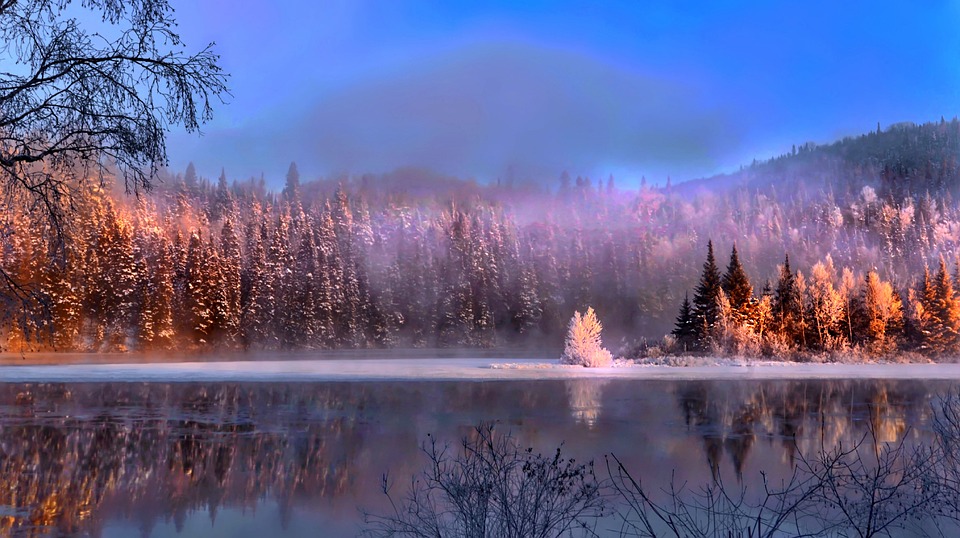Why Do People Think Climate Change Is A Hoax
Climate change represents one of the most pressing global challenges of our time, yet a significant portion of the population remains skeptical about its existence or severity. Understanding this skepticism requires an exploration of various factors, including misinformation, political polarization, psychological influences, economic interests, historical context, media influence, and social dynamics.
Understanding Climate Change
Climate change refers to long-term alterations in temperature and typical weather patterns in a place. The scientific consensus is clear: climate change is real and predominantly driven by human activities, particularly the burning of fossil fuels which increases greenhouse gas emissions. Studies indicate that approximately 97% of climate scientists agree on this anthropogenic cause[6][11]. Despite this overwhelming agreement, skepticism persists.
Factors Contributing to Skepticism
Misinformation and Disinformation
The rise of social media has facilitated the rapid spread of misinformation—false or misleading information shared without malicious intent—and disinformation—deliberately false information intended to deceive.
– Social Media’s Role: Misinformation spreads quickly on platforms like Twitter and Facebook, often outpacing factual information. Research shows that false claims about climate change can be more persuasive than scientific facts due to their emotional appeal and the illusory truth effect, where repeated exposure to misinformation makes it seem more credible[5][7][11].
– Examples of Misleading Narratives: Common claims include assertions that climate change is a hoax or that it is part of natural cycles. These narratives often ignore the substantial evidence linking human activity to climate change[12][13].
Political Polarization
Political beliefs significantly influence perceptions of climate change. In many countries, especially the United States:
– Party Affiliation: Conservative individuals are more likely to deny climate change compared to their liberal counterparts. This divide has deepened over time, with many Republicans viewing climate science with skepticism due to ideological commitments and fears that climate policies threaten their economic interests[2][3][6].
– Ideological Motivations: Skepticism often stems from a desire to maintain existing social structures and resist changes associated with climate action. This phenomenon is linked to broader cultural and political identities[4][6][11].
Psychological and Social Factors
#
Cognitive Dissonance
Cognitive dissonance occurs when individuals encounter information that conflicts with their existing beliefs, leading them to reject or rationalize away the new information to reduce psychological discomfort. This can manifest in:
– Emotional Responses: Feelings of anxiety or fear about climate change may lead individuals to deny its reality as a coping mechanism[1][9].
#
In-group Bias
People are influenced by the beliefs and attitudes prevalent in their communities. Social identity can reinforce skepticism when group norms favor denial or downplay the urgency of climate action.
Economic Interests
Economic factors play a crucial role in shaping attitudes toward climate change:
– Industry Influence: Industries reliant on fossil fuels often lobby against climate policies. Their financial interests can lead to organized efforts to cast doubt on climate science, mirroring tactics used by the tobacco industry in denying health risks[10][11].
– Fear of Economic Consequences: Concerns about job losses and economic downturns associated with transitioning away from fossil fuels can drive individuals and communities toward denial[4][10].
Historical Context
Past inaccuracies in climate predictions have fueled skepticism. Historical instances where predictions did not materialize as expected can create doubt about current scientific assertions regarding climate change.
Media Influence
Media coverage often presents a false balance between scientific consensus and contrarian views, leading audiences to believe there is more uncertainty than actually exists:
– Reporting Bias: The tendency of media outlets to provide equal coverage to both sides can mislead the public into thinking there is significant debate among scientists when there is not[5][7].
Addressing Misconceptions
To combat skepticism effectively:
– Education and Awareness: Increasing public understanding of climate science through education can help dispel myths and counter misinformation.
– Effective Communication: Strategies that emphasize the scientific consensus while addressing emotional responses can foster greater acceptance of climate science[8][9].
Conclusion
The belief that climate change is a hoax stems from a complex interplay of misinformation, political ideology, psychological factors, economic interests, historical context, and media influence. Addressing these issues requires concerted efforts in education, communication, and policy-making aimed at fostering a more informed public discourse on climate change. Understanding these dynamics is crucial for mobilizing effective action against one of humanity’s greatest challenges.

Kyle Whyte is a notable scholar and professor at the University of Michigan, holding positions such as the George Willis Pack Professor in the School for Environment and Sustainability and Professor of Philosophy. Specializing in environmental justice, his work critically examines climate policy and Indigenous peoples’ ethics, emphasizing the nexus between cooperative scientific endeavors and Indigenous justice. As an enrolled Citizen Potawatomi Nation member, he brings a vital perspective to his roles as a U.S. Science Envoy and member of the White House Environmental Justice Advisory Council. His influential research is supported by various prestigious organizations including the National Science Foundation, and disseminated through publications in high-impact journals. Kyle actively contributes to global Indigenous research methodologies and education, with affiliations to numerous institutes and societies dedicated to traditional knowledge and sustainability. Recognized for his academic and community engagement, Kyle has earned multiple awards and served in various visiting professorships. His efforts extend to leadership positions on boards and committees focused on environmental justice nationwide.
